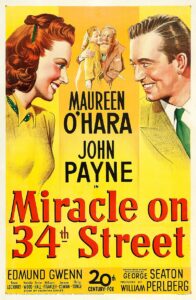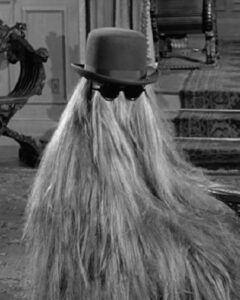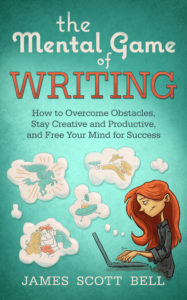by Debbie Burke
Welcome back to another year in The Kill Zone!
Yesterday, Kay compiled a great collection of various new year’s resolutions.
Today, I’d like to share a different slant on resolutions, courtesy of bestselling author Eric Barker. For years, I’ve followed Eric’s “Barking Up the Wrong Tree” blog because of his witty, ironic take on human foibles.
Here’s Eric’s humorous perspective about New Year’s resolutions:
Cynically, you could see these resolutions as a yearly exercise in self-delusion. The tradition where we all collectively decide to lie to ourselves in a more structured format. Often, they’re like annual subscriptions we buy for a better version of ourselves… only to realize we’re more into the free trial.

Photo credit: Jon Tyson, Unsplash
Eric suggests we tackle this new year differently: Make ONLY ONE RESOLUTION.
That’s right. ONE RESOLUTION.
Eric kindly granted permission to share reasons why a single resolution can be effective and methods to keep that single resolution.
How can writers apply his advice?

Photo credit: RDNE Stock Project, Pexels
Stop fantasizing: Year after year, we writers let our imaginations overload us with unrealistic fantasies. We waste energy dreaming about what we can’t possibly achieve.
I’m going to turn out as many books as James Patterson.
I’m going to score interviews on NPR, Good Morning America, and Drew’s TV book club.
Lofty goals but, for most of us, not likely.
Better to make one writing resolution that can you have a realistic chance of achieving.
My resolution: Publish the ninth book in my Tawny Lindholm Thriller series.
For some writers, a goal like this is not ambitious enough; for others, it’s too much.
Before you decide on your resolution, examine your individual circumstances. Be honest.
Do you work long hours at a stressful job? Do you have children and/or aging parents to care for?
Do you have limited physical or mental energy? Do you struggle to concentrate? Are you easily distracted?
Are you a procrastinator? Do you love the idea of writing more than you love actual writing?
After a realistic self-assessment, choose a resolution that’s not a fantasy.
Make a plan: Right now, I’m 170 pages into the above-mentioned ninth book. My goal is to release it for sale by March or April. Based on that timeline, here’s the plan:
- Complete the draft;
- Think of a title;
- Send the manuscript to beta readers then incorporate their suggestions;
- Edit;
- Have cover art designed;
- Format, upload, and proof;
- Do pre-release publicity.
Following a step-by-step plan means there’s a good chance I’ll achieve my resolution.
Whether your plan is three steps or 300, if you take one step at a time, you’ll eventually arrive at your destination.
Do the minimum: Eric says, “When we’re too ambitious we’re much more likely to give up altogether.”
After assessing your individual circumstances, set the bar so low, you can’t help but trip over it.
Say you’re a writer who works full-time, cares for family, and lives with long Covid. What is a realistic resolution? Write one paragraph a day.

RDNE Stock Project, Pexels
Doesn’t sound like much until you add it up.
If a paragraph is 50 words, that’s 18,000+ words in a year. Not bad!
Most important, it’s a resolution that can be kept despite an overwhelmingly busy life.
That doesn’t mean you have to limit yourself to one paragraph. If the words are flowing, keep going. Write a page, a scene, a chapter.
At one page a day, by the end of 2024, that’s 365 pages.
Make bad habits hard: Eric suggests erecting roadblocks to discourage bad habits. For instance, if you waste too much time on social media, delete distracting apps and shortcuts from your devices. You can still enjoy Instagram or goat yoga sites, but you’ll probably do it less often if you must first enter tedious login credentials every time.
Exception: Keep The Kill Zone readily accessible.
Make good habits easy: When Eric resolved to play his guitar more, he took it out of the closet and set it on a stand in the living room. Cutting time and effort made it easier to strum.
Make the habit of writing easy by keeping your tools accessible.
My laptop is on the dining table where I can’t possibly avoid it. If an idea occurs to me while cooking dinner, the computer is only steps away. HGTV decorators would shudder and our home won’t be featured in House Beautiful. But I get more work done than if it were in the office upstairs.
Leverage friends: Eric says, “Peer pressure can be a good thing.”
Hang out with people who encourage your resolution. Surround yourself with friends and family who will cheer you toward your goal. They pump you up when you doubt your ability or when your resolve falters. They help you over roadblocks.
Real life also includes negative peer pressure from snarky in-laws or jealous coworkers. But strive to spend less time with detractors and more time with positive influencers.
Commitment Devices: Eric’s suggestion below makes me smile because it sums up human nature so well.
Give $100 to a trusted friend. If you stick to your resolution, you get your money back. Fail, and that money gets donated to the opposing political party’s reelection fund.

Photo credit: Jonathan Borba, Pexels
Instead of kicking off the new year with unrealistic fantasies that are doomed to fail, choose ONLY ONE RESOLUTION that you know you can keep.
Then keep it.
It’s that simple. Really.
Here’s a link to Eric’s full article.
~~~
TKZers: What is your SINGLE RESOLUTION for 2024?
~~~
Holiday gift cards burning a hole in your pocket? Please check out Deep Fake Double Down, Finalist for the BookLife Prize. Sales link.





 ’Tis the season for Christmas spice. Starbucks has reissued the ever-popular Pumpkin Spice Latte. All over the land people are dipping into their children’s college fund to buy the brew.
’Tis the season for Christmas spice. Starbucks has reissued the ever-popular Pumpkin Spice Latte. All over the land people are dipping into their children’s college fund to buy the brew.








 For the last few days, I’ve felt off. Writing had been difficult. Words refused to flow. Pumping out a decent chapter likened to delivering a 10 lb. baby with wide shoulders and oversized head. Even my playlists didn’t match my mood.
For the last few days, I’ve felt off. Writing had been difficult. Words refused to flow. Pumping out a decent chapter likened to delivering a 10 lb. baby with wide shoulders and oversized head. Even my playlists didn’t match my mood.
 In her excellent
In her excellent 